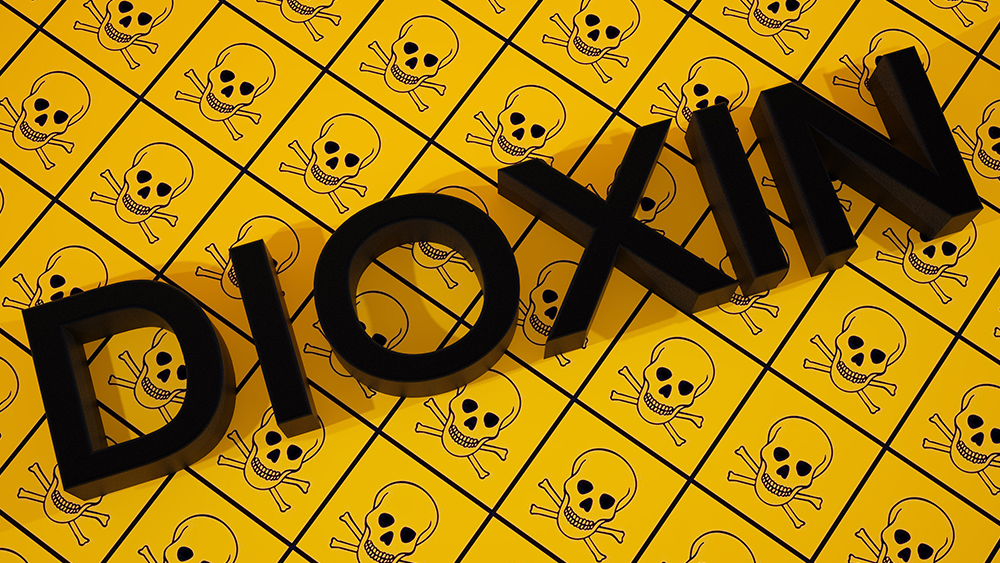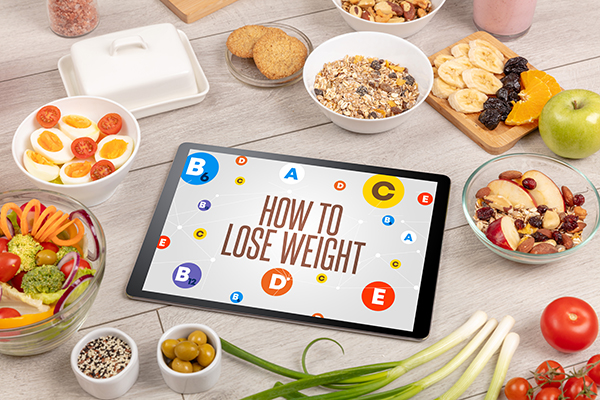Studies show antioxidant-rich foods can help reduce risk of skin cancer
05/24/2023 / By Evangelyn Rodriguez

Diet is an important risk factor for cancer. According to a study published in JNCI Cancer Spectrum, low consumption of whole grains and dairy products and high consumption of processed meats can increase your risk of developing otherwise preventable cancer.
But just as poor diet can raise your likelihood of developing cancer, a healthy diet can help save you from this deadly disease. As reported by the Skin Cancer Foundation, there is growing evidence that eating foods rich in certain nutrients and plant compounds may help prevent skin cancer.
Facts about skin cancer
The main cause of skin cancer is excessive exposure to sunlight. Ultraviolet (UV) rays from the sun, as well as from sunlamps and tanning beds, are known to damage DNA, which dictates cell function. Over time, cumulative DNA damage can cause skin cells to proliferate uncontrollably, resulting in abnormal growths on sun-exposed skin. Although sun exposure is the most common cause of skin cancer, you can also develop the disease on areas not typically exposed to sunlight.
There are three major types of skin cancer: basal cell carcinoma, squamous cell carcinoma and melanoma. Non-melanoma skin cancers like basal and squamous cell carcinoma are the most common cancers in America, affecting some three million people each year. Although both cancers are malignant, they are usually not life-threatening. Squamous cell carcinoma is more aggressive than basal cell carcinoma, but it is fairly slow-growing.
Melanoma, the most serious type of skin cancer, is the fifth most common cancer among American men and women. Melanoma can spread to other parts of the body, such as the lymph nodes, brain, bones, liver and lungs. Because it can grow very quickly, this type of skin cancer can become life-threatening in as little as six weeks if left untreated. It is estimated that about 7,990 Americans will die of melanoma in 2023.
Apart from limiting your sun exposure and protecting your skin from UV damage, recent studies have shown that following a healthy diet can help reduce your risk of skin cancer. For instance, a study by Italian researchers found that high adherence to the Mediterranean Diet is correlated with a lower incidence of melanoma. The researchers linked the protective benefits of the Mediterranean Diet to the consumption of foods rich in vitamins, minerals, healthy fats, polyphenols and flavonoids that exert anti-inflammatory, antioxidant and immune-modulating effects.
Prevent skin cancer with an antioxidant-rich diet
According to a study published in the Journal of Skin Cancer, exposure to UV radiation is a major risk factor for the development of non-melanoma skin cancer. UV radiation triggers the production of free radicals, which can cause oxidative damage to skin cells and their components. DNA damage from oxidative stress has been shown to cause genetic mutations that can lead to tumor formation and skin cancer.
Research has also found that exposure to UV radiation can inhibit your immune system’s ability to fight infections and diseases like cancer. UVB, in particular, can cause immunosuppression by inducing the release of immunosuppressive chemicals, triggering programmed cell death in immune cells and blocking antigen presentation. The process of antigen presentation is crucial for stimulating immune response against cancer/tumor formation.
To protect yourself from the damaging effects of UV radiation, researchers recommend boosting your body’s antioxidant defenses by eating foods rich in potent antioxidants. Antioxidants are naturally occurring compounds that can neutralize free radicals. Your body uses antioxidants to protect healthy cells from oxidative damage.
Plant-based foods like fruits and vegetables are rich in antioxidant nutrients as well as compounds with antioxidant properties. You can lower your risk of developing skin cancer by incorporating foods rich in the following antioxidants into your diet:
Beta-carotene
Beta-carotene is a powerful antioxidant that can reduce inflammation and protect your body from damaging free radicals. This phytonutrient can also boost your immune system by increasing disease-fighting cells in your body.
The richest sources of beta-carotene are yellow, orange and green leafy fruits and vegetables, such as apricots, broccoli, cantaloupe, carrots, lettuce, mangoes, spinach, tomatoes, sweet potatoes and winter squash. In general, the more intense the color of the fruit or vegetable is, the more beta-carotene it has. (Related: Natural compounds in vegetables plus selenium fight melanoma.)
Lycopene
According to a study published in the Turkish Journal of Pharmaceutical Sciences, lycopene is the most effective free radical scavenger among the carotenoids. This means it can protect against oxidative damage and prevent the transformation of normal cells to cancer cells.
Some of the best dietary sources of lycopene are red fruits and vegetables like tomatoes, red carrots, pink guava, apricots, watermelons and pink grapefruits.
Omega-3 fatty Acids
Increasing your intake of healthy fats like omega-3s may provide you with protective benefits against skin cancer. In a study published in the journal Carcinogenesis, researchers found that supplementing with the omega-3, eicosapentaenoic acid (EPA), helps protect against UV radiation-induced DNA damage. EPA also helps reduce susceptibility to sunburn, which is a clear sign of DNA damage in skin cells. This suggests that maintaining healthy levels of this omega-3 can help reduce skin cancer risk.
The richest sources of omega-3 fatty acids are fatty fish like albacore tuna, herring, mackerel, salmon and sardines. Organic nuts, seeds (e.g., chia seeds, flaxseed) and plant oils (flaxseed oil) also contain high amounts of omega-3s.
Polyphenols in tea
Tea is considered one of the healthiest drinks on the planet. Studies show that besides boosting your immune system and helping reduce inflammation, drinking tea can also help prevent skin cancer.
According to researchers at the University of Alabama at Birmingham, tea is a rich source of polyphenols called catechins, which are plant compounds with antioxidant and anti-cancer properties. Tea polyphenols have been shown to protect against UVB-induced skin cancer.
Epigallocatechin 3-gallate (EGCC), the most abundant and potent green tea catechin, promotes the repair of UVB-induced cyclobutane pyrimidine dimers (CPDs), which can initiate mutations if not repaired.
To enjoy the cancer-fighting benefits of catechins, start drinking antioxidant-rich green tea.
Zinc
Zinc is an essential mineral that also functions as an antioxidant. It helps keep your immune system functioning optimally and also helps activate certain antioxidants in the body.
According to studies, zinc acts as a cofactor for enzymes involved in the proper functioning of your body’s antioxidant defense system. At the same time, zinc protects against oxidative damage that can lead to cancer formation.
The richest food sources of zinc are meat, fish and seafood. Oysters contain more zinc per serving than any other food. You can find high amounts of zinc in legumes such as chickpeas, lentils and black beans.
Vitamin C
A potent antioxidant nutrient, vitamin C helps prevent/reduce sun damage by neutralizing free radicals. It also prevents UV radiation from suppressing the immune system — an event thought to play a role in the development of melanoma and non-melanoma skin cancers.
Foods that are rich in vitamin C include fruits like acerola cherries, persimmons, black currants, cantaloupe, guavas, kakadu plums, kiwis, lemons, lychees, oranges, papayas and strawberries, and vegetables like broccoli, Brussels sprouts, chili peppers, kale, kiwis, mustard spinach, parsley and sweet yellow peppers.
Vitamin E
Like vitamin C, vitamin E is an antioxidant nutrient that protects against free radical damage, absorbs energy from UV light, has potent anti-inflammatory effects and improves the skin’s ability to act as a protective barrier.
Foods that are rich in vitamin E include fruits like apricots, avocado, blackberries, black currants, cranberries, kiwi fruit, mango and raspberries; vegetables like asparagus, beet greens, broccoli, butternut squash, collards, mustard greens, red sweet pepper, spinach and Swiss chard; and nuts and seeds like almonds, cashew nuts, hazelnuts, peanuts, pine nuts, pistachios, pumpkin seeds and sunflower seeds.
Adopt a healthy lifestyle and make sure to get plenty of antioxidants from your diet to lower your risk of skin cancer.
For more cancer prevention tips, visit PreventCancer.news.
Watch the following video about the dandelion root extract, which has been found to kill leukemia cells, prostate cancer cells and chemo-resistant melanoma.
This video is from the Natural News channel on Brighteon.com.
More related stories:
Red hair gene may have connection to melanoma and Parkinson’s disease.
Another reason to garden? Scientists discover a microbe in dirt that fights melanoma.
Drinking coffee can naturally cut melanoma risk by 20%.
Sources include:
Submit a correction >>
Tagged Under:
alternative medicine, antioxidants, beta carotene, catechins, diet, fasting, food cures, food is medicine, food science, immune system, lycopene, natural cures, natural health, natural medicine, nutrients, omega-3 fatty acids, phytonutrients, polyphenols, vitamin C, vitamin E, zinc
This article may contain statements that reflect the opinion of the author
RECENT NEWS & ARTICLES
Fasting.News is a fact-based public education website published by Fasting News Features, LLC.
All content copyright © 2018 by Fasting News Features, LLC.
Contact Us with Tips or Corrections
All trademarks, registered trademarks and servicemarks mentioned on this site are the property of their respective owners.




















